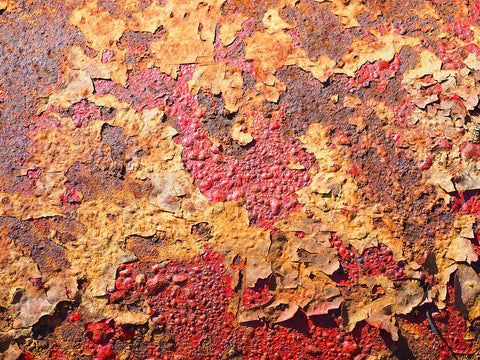In a perfect world, a metal coating will adhere to the substrate and stay there for the duration of a component’s life. Unfortunately, that doesn’t always happen, and the result is flaking. With flaking, the metal covering lifts up from the substrate and begins to peel away.

(Pixabay / dbreen)
Why flaking occurs
Here are several of the most common reasons that metal coatings flake off.
- Overly thick coating. More metal coating equals more protection, right? Wrong. When it comes to electroplating, more is not better. If a metal layer is too thick, it could become brittle. When subjected to force, it could begin to flake away.
- Oxides. Most metals carry a layer of oxides on their surfaces and can carry other contaminants, too, including soap, acid, salt, and more. This residue must be removed before electroplating; otherwise, metal will not stick to the substrate.
- Bath impurities. Traces of iron or other elements or chemicals in the electroplating bath can compromise adhesion and lead to flaking.
- Inconsistent bath heat. For metal to adhere properly, the temperature of the plating bath must remain steady. If it starts to dip, you could get unreliable results that lead to flaking.
- Uneven current. Just as the bath temperature needs to remain steady, so, too, does the current. If an electrical contact breaks during the plating process, fix it and start the process over again.
At Gold Plating Services, we specialize in helping you achieve high quality electroplating. Whether you’re using our copper, rhodium, silver, or gold plating kits, we can provide you with the supplies and instructions you need for durable plating jobs that won’t flake or peel over time.
